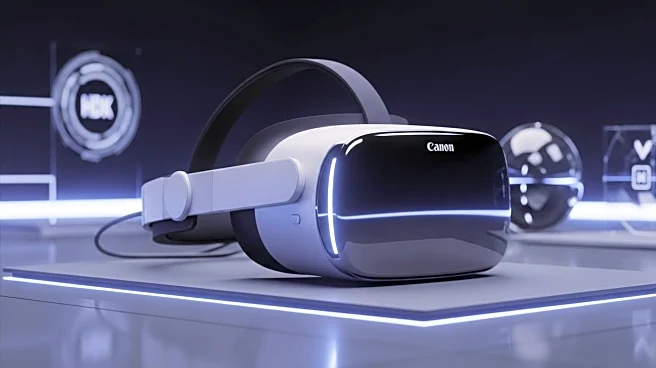What's Happening?
Lynx has announced its upcoming mixed reality headset aimed at enterprise and professional users, focusing on applications such as training and remote assistance. The announcement was made by Lynx CEO Stan Larroque at the MicroLED Connect event, with plans to reveal the device in mid-November. The headset is expected to integrate Google's Android XR operating system and include features from Samsung Project Moohan and XR glasses from XREAL. The new device will feature at least four camera sensors and a redesigned headstrap for improved comfort. Lynx's previous model, the R-1, targeted both consumers and professionals, but the new headset is specifically geared towards enterprise applications.
Why It's Important?
The development of Lynx's new mixed reality headset signifies a shift towards enterprise-focused solutions in the XR industry. By targeting professional users, Lynx aims to capitalize on the growing demand for immersive technologies in business environments, such as training and remote assistance. This move could enhance productivity and efficiency in various sectors, including manufacturing, healthcare, and education. The integration of advanced technologies like Google's Android XR operating system and Samsung's Project Moohan suggests a competitive edge in the market, potentially influencing other companies to prioritize enterprise applications in their XR offerings.
What's Next?
Lynx is expected to provide more details about the new headset in November, including specifications and the official name. The company will likely focus on upgrading the processor and display to meet the needs of enterprise customers. As the XR industry continues to evolve, Lynx's strategic focus on professional applications may prompt other companies to explore similar avenues, potentially leading to increased investment and innovation in enterprise-focused XR solutions.
Beyond the Headlines
The shift towards enterprise applications in the XR industry raises questions about the future of consumer-focused devices. As companies like Lynx prioritize professional users, there may be implications for the availability and development of consumer XR technologies. Additionally, the integration of advanced operating systems and features could lead to ethical considerations regarding data privacy and security in enterprise environments.










